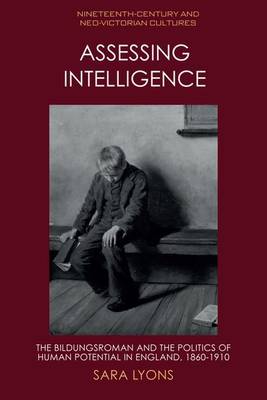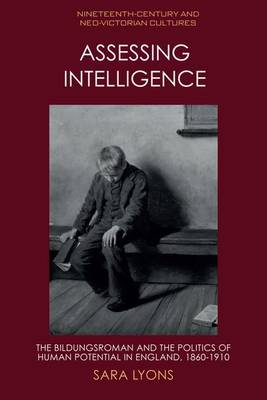
Door een staking bij bpost kan je online bestelling op dit moment iets langer onderweg zijn dan voorzien. Dringend iets nodig? Onze winkels ontvangen jou met open armen!
- Afhalen na 1 uur in een winkel met voorraad
- Gratis thuislevering in België vanaf € 30
- Ruim aanbod met 7 miljoen producten
Door een staking bij bpost kan je online bestelling op dit moment iets langer onderweg zijn dan voorzien. Dringend iets nodig? Onze winkels ontvangen jou met open armen!
- Afhalen na 1 uur in een winkel met voorraad
- Gratis thuislevering in België vanaf € 30
- Ruim aanbod met 7 miljoen producten
Zoeken
Assessing Intelligence
The Bildungsroman and the Politics of Human Potential in England, 1860-1910
Sara Lyons
€ 201,45
+ 402 punten
Omschrijving
How did Victorian novelists engage with the new theories of human intelligence that emerged from late nineteenth-century psychology and evolutionary science? Assessing Intelligence traces the genealogy of the modern concept of IQ. It examines how five writers - George Eliot, Thomas Hardy, Henry James, HG Wells and Virginia Woolf - used the bildungsroman, or the novel of education, to wrestle with the moral and political implications of the IQ model of intelligence and the fantasies of meritocracy it provoked. Drawing upon the work of Michel Foucault and Jacques Rancière, Sara Lyons argues that Victorian and Edwardian novelists were by turns complicit in the biopolitics of intelligence and sought radical ways to affirm the equality of minds.
Specificaties
Betrokkenen
- Auteur(s):
- Uitgeverij:
Inhoud
- Aantal bladzijden:
- 296
- Taal:
- Engels
- Reeks:
Eigenschappen
- Productcode (EAN):
- 9781474497664
- Verschijningsdatum:
- 21/10/2022
- Uitvoering:
- Hardcover
- Formaat:
- Genaaid
- Afmetingen:
- 156 mm x 234 mm
- Gewicht:
- 589 g

Alleen bij Standaard Boekhandel
+ 402 punten op je klantenkaart van Standaard Boekhandel
Beoordelingen
We publiceren alleen reviews die voldoen aan de voorwaarden voor reviews. Bekijk onze voorwaarden voor reviews.











